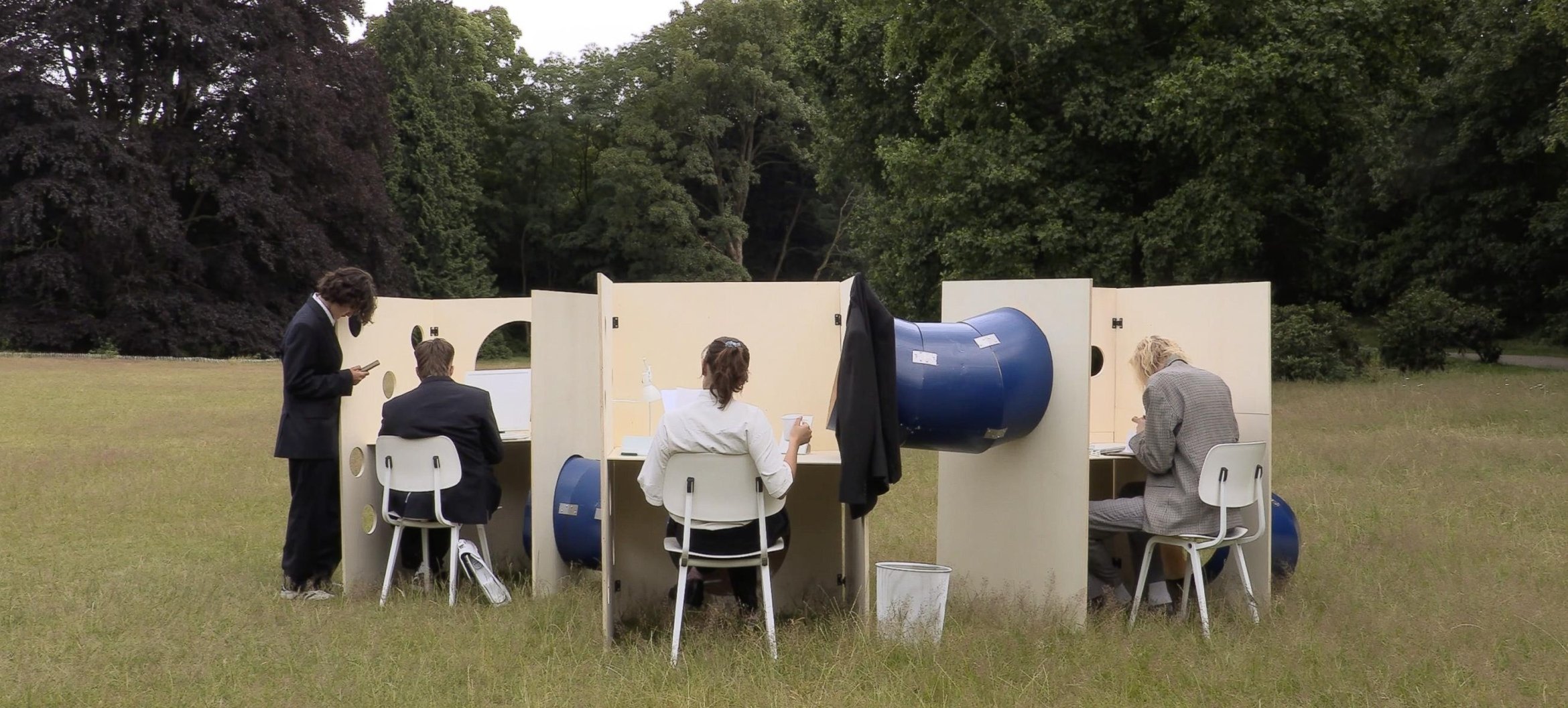SPOTTED: Metropolis M shows the transformation of the traditional office environment into a playful and connected space, created by Graphic Design-alumna Tendai Dzimwasha
- Fine Art
- Design
Every year, magazine Metropolis M releases a Graduation Special, featuring work by several alumni who graduated as visual artists. Tendai Dzimwasha graduated from Graphic Design in Arnhem and is one of the alumni featured in the special. Metropolis M asked the artist the question, "What is the story behind your work?"

A suited employee is sitting behind his desk when he gets a tap on the knee from a colleague who has just crawled out of the tunnel that ends by his legs. They wave to each other.
For her graduation project One by one, Tendai Dzimwasha designed an open plan office in which individualism and efficiency make way for connection and play. She made wooden cubicles linked together by lots of blue tunnels. She then asked a group of actors to activate those cubicles, each 1m² in size. The video she made of the results shows the stand-in employees cheerfully poking fun with our capitalist drive for productivity.
Dzimwasha traces her fascination with the Western work ethic back to her secondary school days. Whilst at school, she realised what she also recognised during her years at ArtEZ: that working separately doesn't work for her. "I actually need to be distracted to be creative", she explains. So she designed a space that allows for that. Apart from the blue tunnels through which documents can be passed, her office also has holes in it for colleagues to have a chat She has given typical office items such as staplers, keyboard and plants a coat of white paint. By removing their usual colour, Dzimwasha aims to open the door to a more playful interaction with those objects.
"Think play, think of your own childhood", says Dzimwasha. She asks herself why we allow that playful attitude to be diluted as soon as we become adults. "I don't want to grow up to be an isolated, production-focused person. That doesn't suit me." Which is why she took the cubicle – that archetypal symbol of isolation – and transformed it into a place of creative freedom.
In the future, she would also like to tackle other environments: home workstations and schools, for example. For now, her focus is trained on a master's course in Design Research in Barcelona, because although she has trained as a graphic designer, she is keen to move beyond two dimensions. No doubt, there are many more play areas to come.
Author: Marsha Bruinen, writer on art and philosophy, and web editor at Metropolis M.